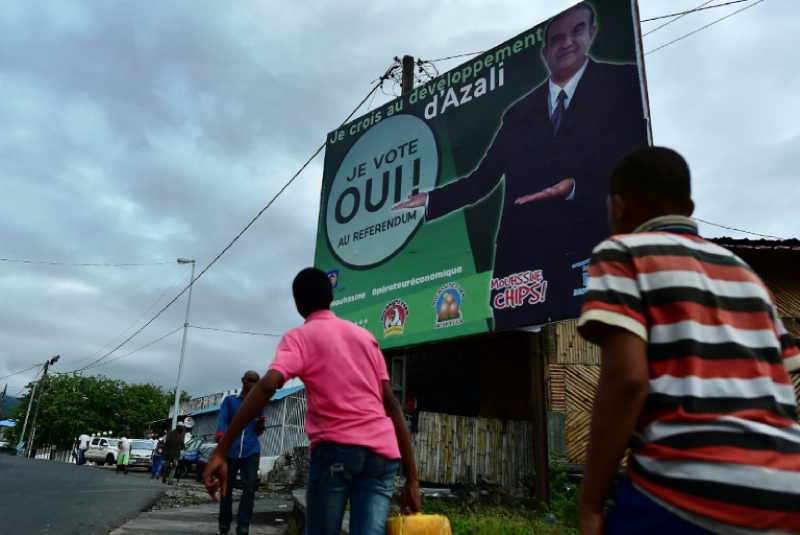×
The Standard e-Paper
Stay Informed, Even Offline

People walk past a banner calling for a 'Yes' vote on an upcoming constitutional referendum and featuring Comoros' President Azali Assoumani in Moroni. [Photo/AFP]
Monday's controversial referendum in the Comoros could allow its president, Azali Assoumani, to seek re-election and retain power beyond 2021, when his currently non-renewable term would otherwise end.